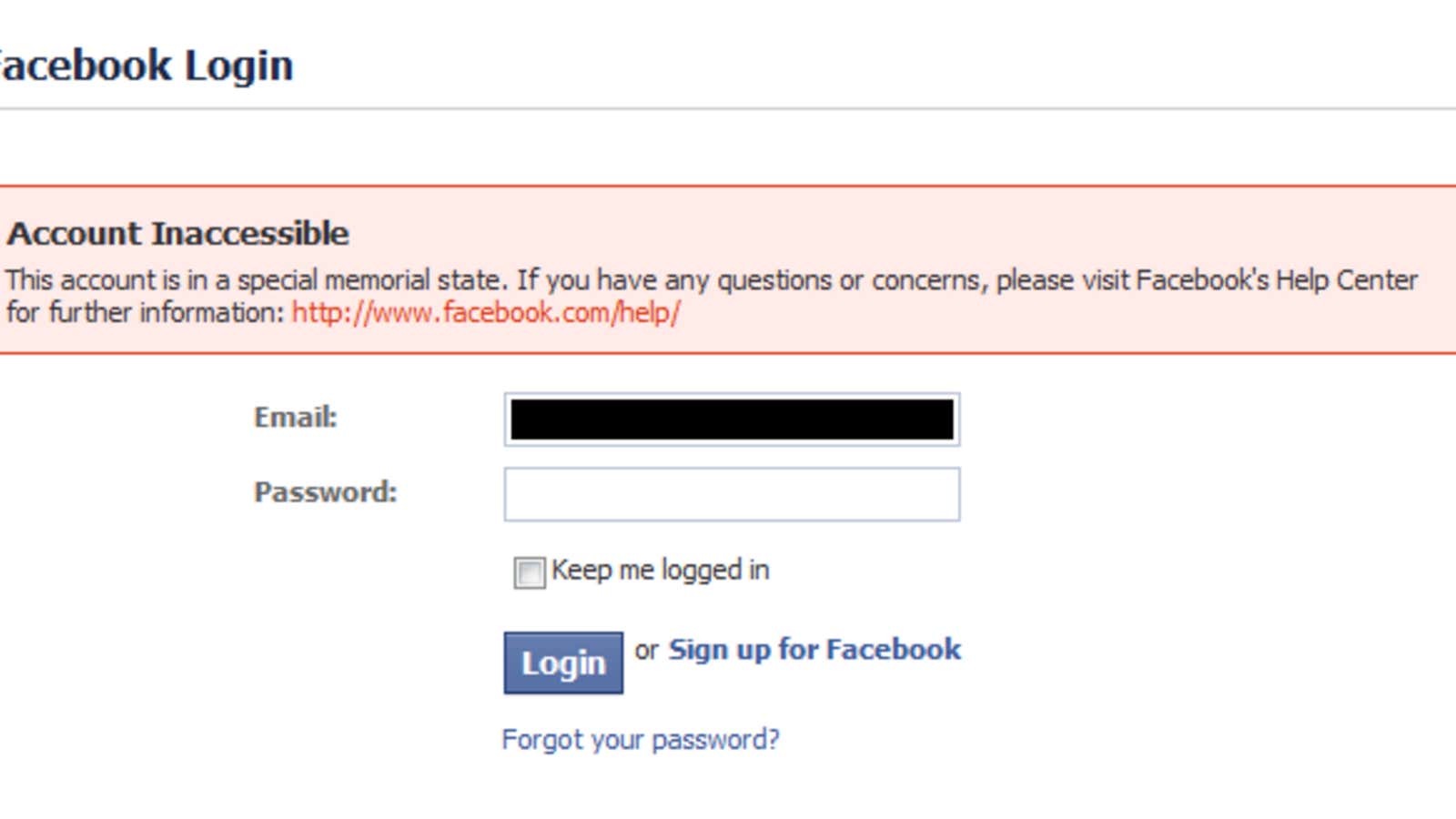In 2012, a teenager was struck and killed by a subway train in Berlin. Her mother wanted to know if the girl’s death was an accident or suicide, so she began investigating the 15-year-old’s life. She asked Facebook to give her access to her daughter’s account, hoping to uncover whether the teen had been bullied, but Facebook refused.
By the time the mother requested access to the account, Facebook had converted it to memorial status, according to Reuters. Memorialization keeps deceased users out of “People You May Know” lists and stops their birthday reminders. It also restricts anyone from logging into the account, and Facebook stuck to that policy when the mother requested access.
The mother then sued Facebook, and a court in Berlin ruled in 2015 that the girl’s parents should inherit access to her account just like they would her physical possessions. It also said her right to privacy was not protected because she was a minor. Facebook appealed that decision, and on Wednesday (May 31), a higher court in Germany ruled that the teen did in fact have a right to her privacy, which superseded her parents’ rights to inherit her belongings. (The German courts did not release the names of the family members to the public.)
Facebook did not respond to Quartz’s request for a comment, but the company outlines its policy for accessing memorialized accounts in the help section of its website.
“If Facebook is made aware that a person has passed away, it’s our policy to memorialize the account,” it says. “Please keep in mind that it’s always against the Facebook Terms to log into another person’s account. We’ll only be able to give you access to an account if we can verify that it’s your own account.”
The mother can still appeal the decision, and Facebook has said it wants to find a way to help the family that “at the same time protects the privacy of third parties,” according to the Associated Press. The company has argued that it’s not only protecting the rights of the teen, but also any other party she may have communicated with on the platform.
Facebook operates in many countries worldwide and has to deal with a myriad of privacy laws. In the US it can be especially complex, with many additional laws on the state level. There are 13 states with laws that guarantee a descendent or executor can access and manage a deceased person’s digital assets, but 15 other states have widely varying caveats and requirements for accessing data.
In Rhode Island, for example, the authorized parties can only petition for access to email accounts, and may be asked to provide a death certificate and other documentation. In Wyoming, a request for access can only be made by an executor if the information is required in order to fulfill their fiduciary duties.
